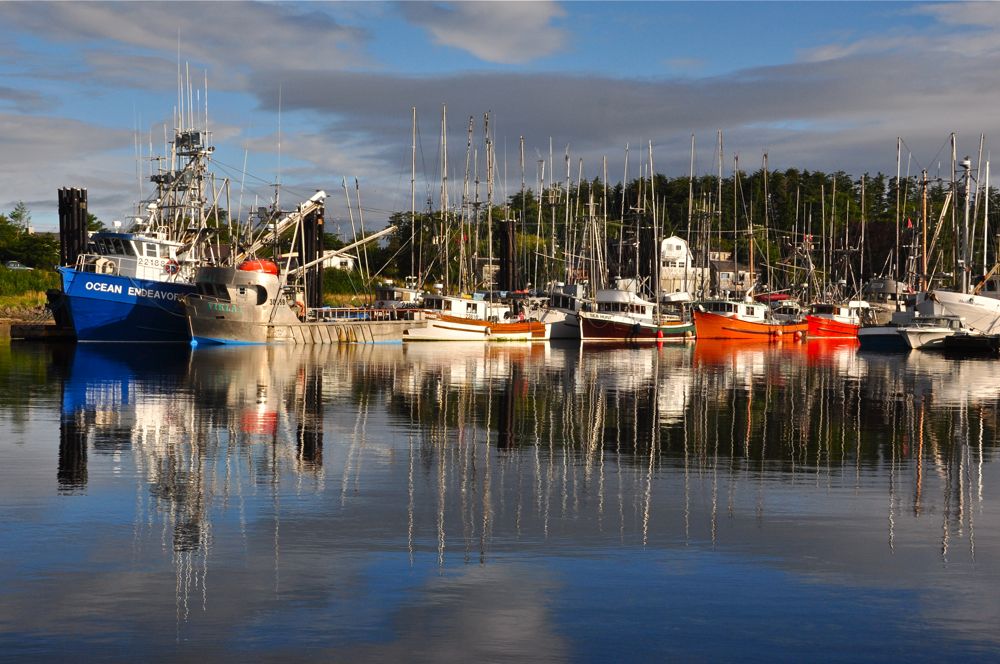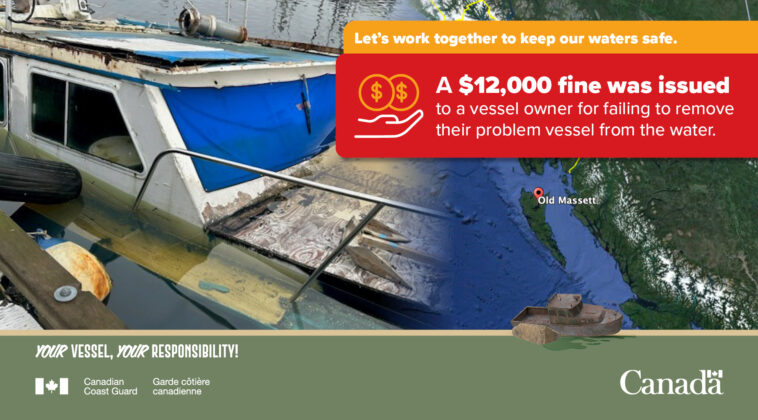The Canadian Coast Guard is warning the public that it is stepping up enforcement and issuing steep fines for derelict vessels across BC. In January, a $12,000 fine was issued for an abandoned vessel that sank in Masset Harbour on Haida Gwaii.
“The vessel was determined to pose a hazard to the marine environment and public safety, as the vessel caused structural damage to a public dock in Masset Harbour, which prevents the safe use of the dock.”
The Canadian Coast Guard
The owner of the 25-foot pleasure craft Dorothy Gale had been previously notified by the Coast Guard to remove their vessel earlier in the month. The failure to comply led to the fine delivered under the 2019 Wrecked, Abandoned or Hazardous Vessels Act.
“The vessel was determined to pose a hazard to the marine environment and public safety, as the vessel caused structural damage to a public dock in Masset Harbour, which prevents the safe use of the dock,” said the Canadian Coast Guard in a statement.

This is the second fine for a derelict vessel ever issued under the Act, though the Coast Guard has warned more were likely on the way. Since the start of the year, 38 new cases were opened and 25 warning notices have been issued to boat owners. Of the 1491 abandoned boats tracked by Transport Canada, 1048 are currently located in BC.
Experts say there is an increasing problem of abandoned crafts on BC’s coast resulting in negative consequences for the marine environment. Vessels leak fluids that are full of heavy metals and chemicals into the water and can seriously harm the local ecosystem.
“We’re trying to get our shellfish industry back in BC. Once a boat is kind of deteriorated on the shoreline, you’re gonna lose that area harvest pretty well forever.”
John Roe, Founder of the Dead Boat Disposal Society
John Roe of the Dead Boat Disposal Society told The Northern Review, “We’re trying to get our shellfish industry back in BC. Once a boat is kind of deteriorated on the shoreline, you’re gonna lose that area harvest pretty well forever.” The Dead Boat Disposal Society is a non-profit organization formed in 2017, initially to legally seize and dispose of 17 boats and marine debris in Cadboro Bay.
The first ever ticket issued under the 2019 law was a $15,000 fine last year for a boat washed ashore in Cadboro Bay, on the southern tip of Vancouver Island, near Victoria.
The Coast Guard stated that vessel owners are responsible for maintaining their boats and properly disposing of them when they are no longer functioning. They recommend that if you have a boat or are considering buying one, check out Transport Canada’s information guide on how to be a responsible boat owner, including the section on “how to plan for the end of life for your boat.”







